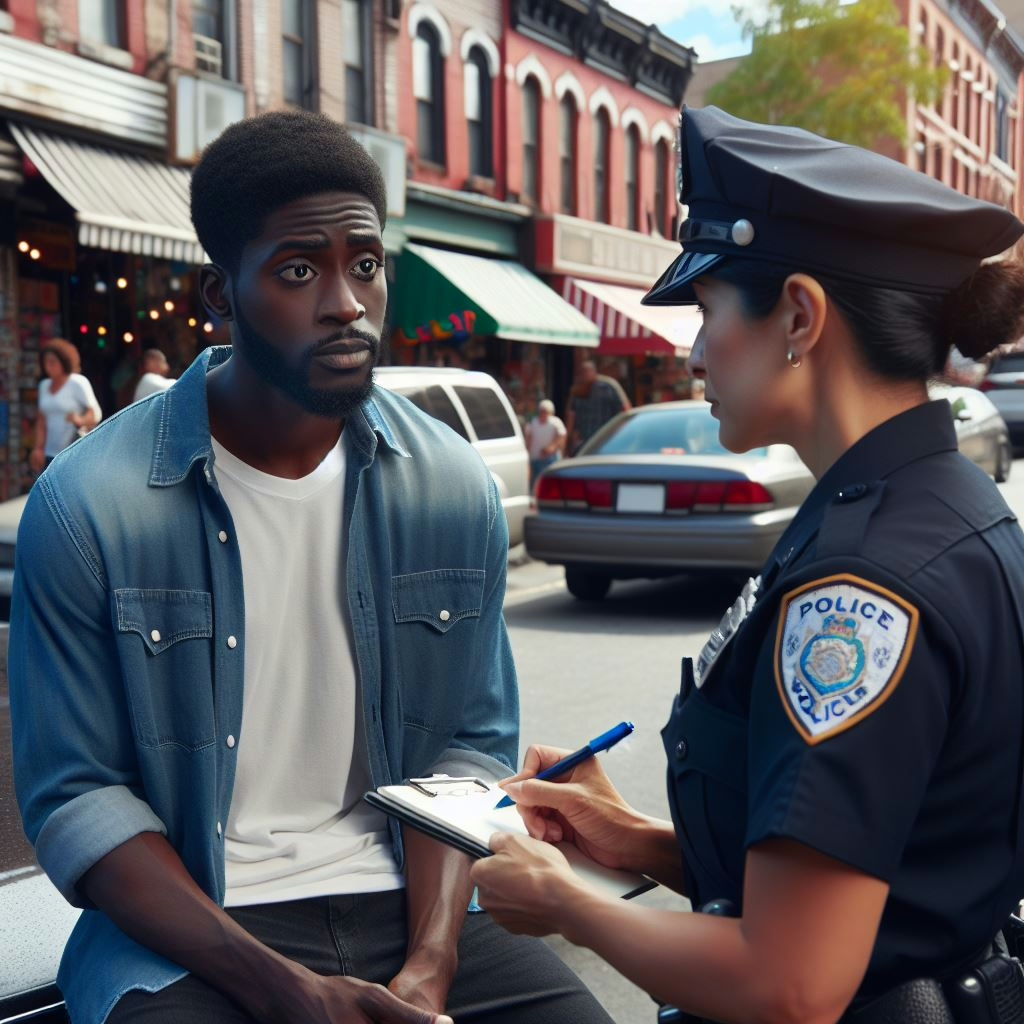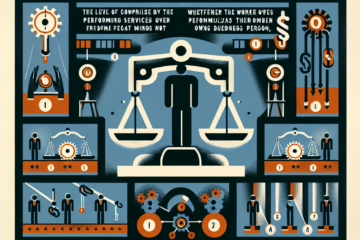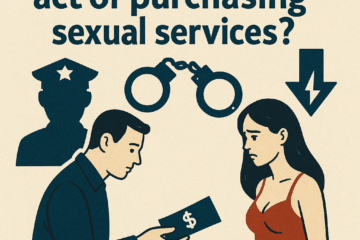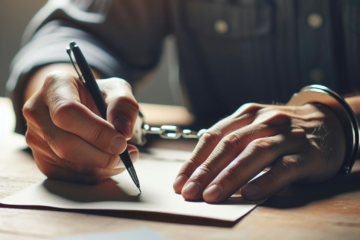Understanding your rights during police encounters is crucial for maintaining your legal protections and ensuring fair treatment. In Canada, the framework governing these rights is designed to balance public safety with individual freedoms. This article explores the key aspects of your rights during police encounters, helping you navigate situations with confidence and awareness. From the right to remain silent to handling traffic stops and filing complaints, each section provides a comprehensive overview of what you need to know.
Table of contents
Understanding Your Rights in Police Encounters

In Canada, police encounters can occur in various contexts, ranging from routine traffic stops to more serious investigations. Knowing your rights in these situations is essential to protect yourself and ensure that law enforcement operates within legal boundaries. The Canadian Charter of Rights and Freedoms outlines fundamental rights, including the right to life, liberty, and security, which underpin interactions with police officers. Understanding these rights empowers individuals to respond appropriately and safeguard their interests.
During a police encounter, it’s important to remain calm and composed. While officers have the authority to perform certain duties, they must also respect your rights. Being aware of what you can and cannot do helps prevent misunderstandings and potential conflicts. For instance, you have the right to ask if you are free to leave if you are not under arrest. This simple question can clarify the nature of the encounter and your obligations.
Education plays a significant role in ensuring that individuals are prepared for police interactions. By familiarizing yourself with your rights and the typical procedures followed by law enforcement, you can better navigate these situations. Numerous resources, including legal aid organizations and government websites, offer valuable information to help you understand your rights and responsibilities.
Ultimately, the goal is to foster a respectful and cooperative relationship between the public and police officers. By knowing your rights, you contribute to a system that upholds justice and accountability, ensuring that police encounters are conducted fairly and lawfully.
The Legal Framework in Canada Explained
The legal framework governing police encounters in Canada is primarily based on the Canadian Charter of Rights and Freedoms. Enacted in 1982, the Charter is a cornerstone of Canadian law, guaranteeing fundamental rights and freedoms to all individuals. It sets the parameters for lawful police conduct, ensuring that officers do not overstep their authority during interactions with the public.
One of the key provisions of the Charter relevant to police encounters is Section 8, which protects individuals from unreasonable search and seizure. This section ensures that any search conducted by police must be reasonable and justified, often requiring a warrant. Understanding this right is crucial, as it provides a safeguard against arbitrary or invasive searches.
Section 9 of the Charter protects against arbitrary detention or imprisonment. This means that police cannot detain individuals without a valid reason. If you are stopped by the police, they must have grounds for their actions, and you have the right to ask for clarification. This protection ensures that individuals are not subjected to unwarranted detentions.
Another significant aspect of the legal framework is Section 10, which outlines the rights upon arrest or detention. These include the right to be informed of the reasons for arrest and the right to consult with legal counsel. This section is vital for ensuring that individuals understand their situation and can seek legal advice to protect their rights.
Your Right to Remain Silent: What It Means
The right to remain silent is a fundamental legal protection in Canada, ensuring that individuals are not compelled to incriminate themselves during police encounters. This right is rooted in the principles of fairness and justice, allowing individuals to choose whether or not to speak when questioned by law enforcement.
Exercising your right to remain silent can be crucial during police encounters. While you are required to provide basic information such as your name and address in certain situations, you are not obligated to answer further questions. This right helps prevent self-incrimination and ensures that any statements made are voluntary and informed.
It’s important to be aware that the right to remain silent can be invoked at any time during an encounter with the police. If you choose to remain silent, you should communicate this clearly and politely to the officers. Remember that anything you say can be used as evidence, so it’s often advisable to wait until you have consulted with a lawyer before providing any statements.
Understanding the implications of this right is essential for protecting your legal interests. While remaining silent can be a wise choice, there are situations where providing information may be beneficial. Consulting with legal counsel can help you determine the best course of action based on the specific circumstances of your encounter.
When and How to Request Legal Counsel
Requesting legal counsel is one of the most important rights you have during a police encounter. This right is protected under Section 10(b) of the Canadian Charter of Rights and Freedoms, which ensures that you can consult with a lawyer without delay upon arrest or detention. Knowing when and how to exercise this right is vital for safeguarding your interests.
You should request legal counsel as soon as you are detained or arrested by the police. While officers may continue to ask questions, you have the right to remain silent until you have spoken with a lawyer. It’s important to clearly state your desire to consult with legal counsel, as this triggers the police’s obligation to provide access to a lawyer.
In Canada, individuals have access to legal aid services that can provide assistance if they cannot afford a private lawyer. Legal aid can offer guidance and representation, ensuring that your rights are protected. If you are unable to reach a lawyer, the police must provide you with information on how to contact legal aid services.
Having legal counsel can significantly impact the outcome of a police encounter. A lawyer can advise you on your rights, help you understand the legal implications of your situation, and represent you in any legal proceedings. By requesting legal counsel, you ensure that you have the support and guidance necessary to navigate the complexities of the legal system.
Search and Seizure: Knowing Your Boundaries
Search and seizure are critical aspects of police encounters, governed by strict legal boundaries to protect individual privacy and property rights. In Canada, Section 8 of the Canadian Charter of Rights and Freedoms safeguards individuals from unreasonable search and seizure, emphasizing the need for law enforcement to have justifiable reasons for their actions.
In most cases, police require a warrant to conduct a search. A warrant is a legal document authorized by a judge, based on evidence that suggests a crime has been committed. However, there are exceptions where police can conduct searches without a warrant, such as when obtaining evidence during an arrest or in situations where public safety is at risk.
Understanding the limits of police authority in search and seizure situations is crucial. If officers request to search your property, you have the right to ask for a warrant. Without one, you can refuse consent to the search, although there are scenarios where police may proceed without your permission under specific legal grounds.
It’s important to remain calm and cooperative during search and seizure encounters. While you have the right to question the validity of a search, obstructing or interfering with police activities can lead to legal consequences. If you believe your rights have been violated during a search, document the details and consult with legal counsel to explore your options for recourse.
The Role of Identification and Documentation
Identification and documentation play a significant role in police encounters, influencing the nature of the interaction and the rights involved. In Canada, the requirement to provide identification depends on the context of the encounter. Understanding when and how to present identification can help you navigate these situations effectively.
During a police encounter, you may be asked to provide your name, address, and date of birth. In certain situations, such as traffic stops or when a police officer suspects you of committing an offense, you are legally required to provide this information. However, in other circumstances, you may not be obligated to show identification unless you are being lawfully detained or arrested.
Documentation, such as recording the encounter, can also be an important tool for protecting your rights. While individuals have the right to record police interactions in public spaces, it’s essential to do so respectfully and without interfering with police duties. Recorded evidence can be valuable if you need to file a complaint or seek legal advice later.
Being informed about your rights regarding identification and documentation ensures that you comply with legal requirements while protecting your personal information. If you have concerns about providing identification or the way an encounter is being documented, consult with legal counsel to understand your rights and obligations.
Handling Traffic Stops: Rights and Obligations
Traffic stops are one of the most common types of police encounters, and knowing your rights and obligations during these interactions is crucial. In Canada, traffic stops are conducted to ensure road safety and enforce traffic laws. Understanding the legal framework governing these stops can help you respond appropriately.
When pulled over by the police, you are required to stop your vehicle safely and provide your driver’s license, vehicle registration, and proof of insurance. These documents are necessary for verifying your identity and ensuring compliance with traffic regulations. Failing to provide them can result in legal penalties.
While you must comply with requests for documentation, you still have rights during a traffic stop. For example, you have the right to remain silent beyond providing the necessary documents. If questioned, you can politely decline to answer further questions until you have spoken with legal counsel.
It’s important to remain calm and cooperative during a traffic stop. If you believe your rights are being violated, document the details of the encounter and seek legal advice afterward. Understanding your rights and obligations helps ensure that traffic stops are conducted fairly and lawfully, protecting both your interests and public safety.
Important: Please note that the information here is not meant to be legal advice. Do not solely rely on the information given here; it is important that you consult with a lawyer regarding any legal advice. Pax Law Corp. is not responsible for any reliance on the contents of this blog post. Any faces posted on this blog post is totally AI generated and they are not intended to represent any person in the real world. Any similarities are completely coincidental.
- What are my rights during a police encounter in Canada?
You have the right to remain silent, the right to ask if you are free to leave, and the right to consult a lawyer upon arrest or detention.
- Can the police search me without a warrant in Canada?
Police generally need a warrant to search you, but there are exceptions such as during an arrest or in urgent situations.
- What should I do if I am stopped by the police in Canada?
Stay calm, provide necessary identification, and remember your right to remain silent beyond basic details.
- Can I record a police encounter in Canada?
Yes, you can record police interactions in public spaces as long as you do not interfere with their duties.
- Do I need to show ID during a police encounter in Canada?
You may be required to provide ID if you are detained or arrested, but not in every situation.
- What is the Canadian Charter of Rights and Freedoms?
The Canadian Charter of Rights and Freedoms outlines the fundamental rights and freedoms guaranteed to all Canadians, including those in police encounters.
- What does Section 8 of the Canadian Charter protect?
Section 8 protects individuals from unreasonable search and seizure, ensuring that police searches are justifiable and based on a warrant.
- When can I invoke my right to remain silent during a police encounter in Canada?
You can invoke your right to remain silent at any time during a police encounter to avoid self-incrimination.
- What information do I have to provide during a police encounter in Canada?
In certain situations like traffic stops, you must provide basic information such as your name, address, and identification details.
- When am I required to provide my identification to police in Canada?
Police may require your identification during a lawful detention, arrest, or when you are suspected of committing an offense.
- Can police detain me without a reason in Canada?
No, police must have a valid reason to detain you, as per Section 9 of the Canadian Charter of Rights and Freedoms.
- Can I leave if I’m not under arrest during a police encounter in Canada?
Yes, if you are not under arrest, you have the right to ask if you are free to leave.
- What happens if the police don’t inform me of my rights in Canada?
If the police fail to inform you of your rights, it could impact the legality of their actions and any evidence gathered.
- What does Section 10 of the Canadian Charter guarantee?
Section 10 ensures that individuals have the right to be informed of the reasons for their arrest and the right to consult with legal counsel.
- Can I refuse to answer questions from the police in Canada?
Yes, you can refuse to answer questions beyond providing necessary identification or information during a lawful encounter.
- What should I do if the police ask to search my property in Canada?
You can ask to see a warrant, and if one isn’t provided, you may refuse consent, unless the police have a valid reason to search without one.
- What does Section 9 of the Canadian Charter protect?
Section 9 protects individuals against arbitrary detention or imprisonment, meaning police cannot detain you without a valid reason.
- What is the role of legal counsel during a police encounter in Canada?
Legal counsel helps you understand your rights, offers advice, and represents you if needed during the police encounter or subsequent legal proceedings.
- Can I request a lawyer at any time during a police encounter in Canada?
Yes, you can request a lawyer at any point during an arrest or detention, and police must facilitate access to legal counsel.
- Can I refuse to consent to a police search of my car in Canada?
Yes, you can refuse consent, unless the police have a valid reason, such as evidence of a crime or a risk to public safety.
- What happens if the police don’t respect my rights during an encounter in Canada?
If your rights are violated, you can file a complaint with the police department, seek legal advice, or take legal action if necessary.
- Are police allowed to stop my vehicle at any time in Canada?
Police can stop your vehicle if they have a reasonable suspicion of an offense or to enforce traffic laws.
- What documents must I provide during a traffic stop in Canada?
During a traffic stop, you must provide your driver’s license, vehicle registration, and proof of insurance.
- Can the police search my car without my permission during a traffic stop in Canada?
Police can search your car during a traffic stop if they have a valid reason or if they arrest you, but they generally need a warrant otherwise.
- What should I do if I’m stopped by the police while walking in Canada?
You can ask if you are free to leave and, if not under arrest, can choose to walk away, depending on the circumstances.
- What does the right to remain silent protect in a police encounter?
The right to remain silent protects you from self-incrimination and ensures any statements you make are voluntary and informed.
- How can I ensure my rights are respected during a police encounter?
Remain calm, know your rights, and seek legal counsel if necessary to ensure your rights are protected during the encounter.
- What happens if I refuse to answer questions during a traffic stop in Canada?
If you refuse to answer questions beyond providing necessary documents, you can still be ticketed, but your refusal will not result in criminal penalties.
- Can police arrest me without telling me why in Canada?
Police must inform you of the reasons for your arrest as per Section 10 of the Canadian Charter of Rights and Freedoms.
- Can I challenge an unlawful search by the police in Canada?
Yes, if you believe a search is unlawful, you can challenge it through the legal system and seek compensation or other remedies.
- How can I file a complaint against the police in Canada?
You can file a complaint with the police department’s internal affairs division or the provincial police oversight body.
- Do I need a lawyer if I am questioned by police in Canada?
While you are not required to have a lawyer present during questioning, it is highly advisable to consult a lawyer, especially if arrested.
- How can legal aid assist me during a police encounter in Canada?
Legal aid can provide free or low-cost legal representation and advice if you are detained or arrested but cannot afford a private lawyer.
- Can I refuse to consent to a search of my home in Canada?
Yes, you can refuse a search if the police do not have a warrant or a valid legal reason to conduct it.
- What happens if I am arrested and can’t contact a lawyer immediately in Canada?
If you cannot contact a lawyer immediately, the police must provide you with information on how to access legal aid or another lawyer.
- How can I prove my rights were violated during a police encounter?
Document the encounter, gather any witness statements, and consult with legal counsel to explore your options for proving a rights violation.
- Can police arrest me if I am not breaking the law in Canada?
Police cannot arrest you without reasonable grounds, even if you are suspected of being involved in a crime.
- What are my rights during an immigration detention in Canada?
During immigration detention, you have the right to consult with legal counsel, be informed of the reasons for your detention, and be treated humanely.
- What is the importance of knowing your rights during a police encounter?
Knowing your rights ensures that you can protect yourself, avoid self-incrimination, and ensure that police interactions remain lawful.
- Can police search my phone or electronic devices in Canada?
Police generally need a warrant to search electronic devices unless there are specific legal reasons such as public safety concerns.
- What if I feel my rights are being violated during an arrest?
If you believe your rights are violated, you should remain calm, record the details if possible, and consult with a lawyer afterward.
- What is the role of police oversight in Canada?
Police oversight bodies help ensure that law enforcement agencies are accountable and that citizens’ rights are upheld during encounters with police.
- Can I refuse to answer questions about my whereabouts during a police encounter?
You can refuse to answer questions about your whereabouts unless the police have a valid reason to detain you.
- What happens if I am detained but not arrested in Canada?
If you are detained but not arrested, you have the right to know why and may ask if you are free to leave.
- How can I protect myself during a police encounter in Canada?
Stay calm, know your rights, avoid escalating the situation, and seek legal advice if needed.
- What are the legal limits on police questioning in Canada?
Police cannot question you in a way that forces self-incrimination or violates your right to remain silent.
- Can I ask for a lawyer if I’m not under arrest?
If you are not under arrest, you do not have the automatic right to consult a lawyer, but you may ask for legal advice.
- What is the difference between being detained and being arrested in Canada?
Being detained means you are temporarily held by the police with limited freedom, while being arrested means you are formally charged with a crime.
- Can police ask for my ID during a routine check in Canada?
Police may ask for your ID during routine checks if they have a lawful reason to stop you, such as enforcing traffic laws or suspicion of a crime.
- Can I leave if I’m stopped by the police in Canada but not under arrest?
Yes, you can leave if you are not under arrest, and you may ask if you are free to go to clarify your situation.
- What should I do if the police refuse to provide me with legal counsel?
Document the situation, ask for a lawyer again, and consider seeking legal advice on how to proceed with your case.



0 Comments